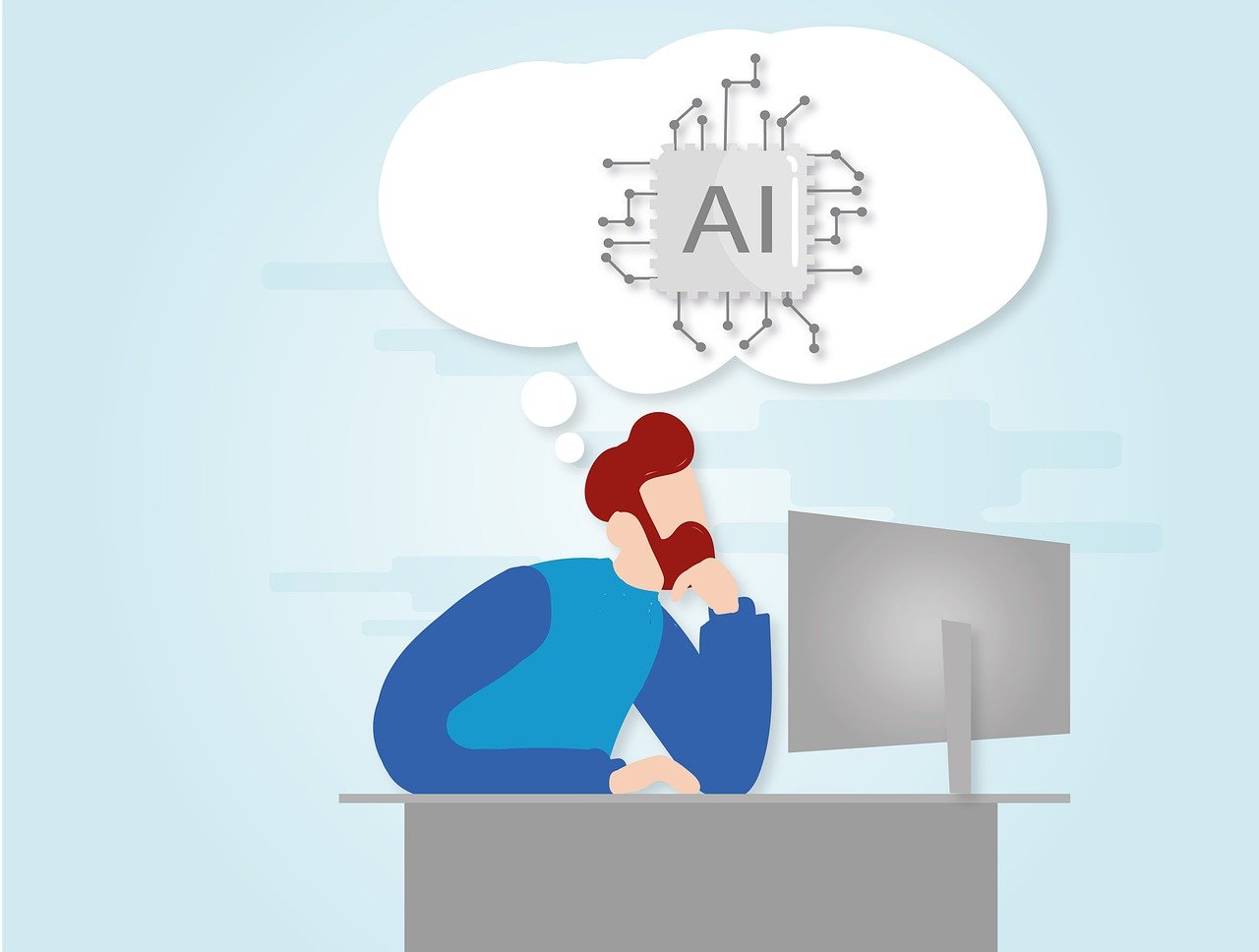Artificial Intelligence Revolution in Future Health Care
In recent years, the world of healthcare has been undergoing a remarkable transformation, largely thanks to the advent of Artificial Intelligence (AI). This technology is not just a fleeting trend; it represents a seismic shift in how we approach health care, promising to enhance patient outcomes, streamline processes, and reduce costs. Imagine a world where your doctor can predict your health issues before they even arise, or where treatments are tailored specifically to your genetic makeup. Sounds like science fiction, right? Well, it's becoming a reality!
AI's impact on healthcare is multifaceted, touching various aspects from diagnostics to patient management. At its core, AI leverages vast amounts of data to provide insights that were previously unimaginable. For instance, advanced algorithms can analyze medical images with incredible precision, identifying conditions like tumors or fractures that might be missed by the human eye. This not only leads to earlier detection of diseases but also enhances the overall accuracy of diagnoses, allowing healthcare professionals to make informed decisions swiftly.
Moreover, the integration of AI in healthcare is not limited to diagnostics. It extends to personalized medicine, where treatments are customized based on individual patient profiles. By considering factors such as genetics, lifestyle, and even environmental influences, AI systems can recommend the most effective treatment plans, minimizing side effects and maximizing efficacy. This is akin to having a tailor who crafts a suit that fits you perfectly, rather than a one-size-fits-all approach.
However, with great power comes great responsibility. The implementation of AI in healthcare is not without its challenges. Issues such as data privacy, regulatory hurdles, and the need for adequate training for healthcare professionals must be addressed. After all, we wouldn't want a brilliant technology to be hindered by avoidable pitfalls, right? Ensuring that AI is implemented ethically and responsibly is crucial for its success.
As we look to the future, the potential of AI in healthcare seems boundless. We can expect to see advancements in predictive analytics that will revolutionize how we anticipate health trends and outbreaks. Imagine being able to forecast the next flu season with pinpoint accuracy—healthcare providers could allocate resources more effectively, ultimately saving lives. Additionally, the integration of AI and robotics in surgical procedures promises to enhance precision and reduce recovery times, transforming how surgeries are performed and significantly improving patient outcomes.
In conclusion, the AI revolution in healthcare is not just about technology; it's about improving lives. From accurate diagnostics to personalized treatments and enhanced surgical procedures, AI is paving the way for a future where healthcare is more efficient, equitable, and accessible. As we embrace this change, we must also remain vigilant about the ethical implications of AI, ensuring that it serves all of humanity fairly and justly.
- What is artificial intelligence in healthcare?
Artificial intelligence in healthcare refers to the use of advanced algorithms and machine learning to analyze medical data, improve diagnostic accuracy, and personalize treatment plans.
- How does AI improve diagnostics?
AI enhances diagnostics by analyzing medical images and data with high precision, enabling earlier detection of diseases and reducing the likelihood of human error.
- What are the challenges of implementing AI in healthcare?
Challenges include data privacy concerns, regulatory issues, and the need for adequate training for healthcare professionals to use AI tools effectively.
- Is personalized medicine the future of healthcare?
Yes, personalized medicine, enhanced by AI, tailors treatments to individual patients, improving outcomes and minimizing side effects.
- What role will predictive analytics play in the future of healthcare?
Predictive analytics will help forecast health trends and outbreaks, allowing healthcare providers to respond proactively and allocate resources more effectively.

The Role of AI in Diagnostics
Artificial Intelligence (AI) is making waves in the healthcare industry, particularly in the realm of diagnostics. Imagine a world where diseases are detected at their earliest stages, where algorithms can sift through mountains of medical data faster than a human ever could. This is not just a dream; it's becoming a reality. With advanced algorithms, AI technologies are enhancing diagnostic accuracy, allowing healthcare professionals to identify diseases earlier and more effectively than traditional methods.
One of the most significant advantages of AI in diagnostics is its ability to analyze vast amounts of data quickly. For instance, AI systems can review thousands of medical images, such as X-rays or MRIs, and highlight potential abnormalities that a human eye might miss. This not only speeds up the diagnostic process but also reduces the chances of human error. Think of it like having a super-smart assistant who never gets tired and can recall every detail from numerous cases in an instant!
Furthermore, AI can integrate with existing healthcare systems, pulling data from electronic health records (EHRs) and other sources to provide a comprehensive view of a patient's health. This integration allows for more informed decision-making and personalized treatment plans. For example, AI can analyze a patient's history, genetic information, and lifestyle factors to predict their risk for certain conditions, leading to proactive care rather than reactive treatment.
However, the implementation of AI in diagnostics is not without its challenges. There are concerns about data privacy, as sensitive patient information is being processed and analyzed. Moreover, healthcare professionals need adequate training to work alongside these advanced systems effectively. It's crucial for the industry to address these challenges to fully leverage the potential of AI in diagnostics.
In summary, AI is revolutionizing diagnostics by enhancing accuracy, speeding up processes, and enabling personalized care. As we continue to embrace these technologies, the future of healthcare looks promising, with the potential for improved patient outcomes and more efficient medical practices.
- What is AI in diagnostics? AI in diagnostics refers to the use of artificial intelligence technologies to analyze medical data and improve the accuracy and speed of disease detection.
- How does AI improve diagnostic accuracy? AI improves diagnostic accuracy by processing large volumes of data quickly and identifying patterns that may not be visible to human practitioners.
- What are the challenges of implementing AI in diagnostics? Challenges include data privacy concerns, the need for clinician training, and ensuring the technology is integrated into existing healthcare systems effectively.
- Can AI replace human doctors in diagnostics? While AI can enhance diagnostic processes, it is not meant to replace human doctors but rather to assist them in making better-informed decisions.

AI in Personalized Medicine
In recent years, personalized medicine has emerged as a game-changer in the healthcare landscape, and at the heart of this transformation is artificial intelligence (AI). The ability of AI to analyze vast amounts of data allows for a tailored approach to medical treatment, which is a significant shift from the traditional one-size-fits-all model. Imagine walking into a doctor's office and instead of receiving a generic prescription, you are handed a treatment plan specifically designed for your unique genetic makeup, lifestyle, and health history. This is not just a dream; it’s becoming a reality thanks to AI.
At its core, personalized medicine leverages advanced machine learning algorithms to sift through complex datasets. These algorithms can identify patterns and correlations that would be impossible for humans to discern. For instance, by analyzing genetic information alongside other health indicators, AI can predict how a patient will respond to a specific treatment. This level of precision not only enhances the effectiveness of the treatment but also minimizes potential side effects, leading to a more satisfactory patient experience.
Machine learning algorithms are truly the backbone of this revolution. They work by processing enormous datasets, which can include everything from genomic sequences to lifestyle choices. By analyzing this data, these algorithms can forecast patient responses to various treatments. For example, if a patient has a particular genetic marker, the algorithm might suggest a specific medication that has shown higher efficacy in similar cases. This targeted approach is akin to having a personal health coach who knows exactly what works best for you.
One of the key challenges in personalized medicine is the integration of diverse data sources. However, AI excels at this task. By combining data from genomics, electronic health records, and even wearable technology, AI can create a comprehensive picture of a patient's health. This integration allows for more accurate predictions and insights, leading to personalized treatment strategies that are not only effective but also adaptable as new data comes in. The synergy between different data types is crucial—like a well-orchestrated symphony where each instrument plays its part to create beautiful music.
Numerous case studies have emerged, showcasing the successful application of AI in personalized medicine. For instance, a recent study demonstrated that patients with specific genetic markers for breast cancer received significantly better outcomes when treated with AI-recommended therapies compared to traditional methods. Such success stories are paving the way for broader adoption of AI in clinical settings, illustrating that the future of medicine is not just about treating diseases but about understanding and anticipating patient needs on an individual level.
However, while the promise of AI in personalized medicine is exciting, it also brings challenges. Issues such as data privacy, regulatory hurdles, and the need for clinician training must be addressed to ensure effective implementation. As healthcare professionals embrace AI, they must also be equipped with the knowledge and tools to interpret AI-driven insights accurately.
In summary, AI is not just a tool but a transformative force in personalized medicine. By harnessing the power of machine learning and data integration, healthcare can become more precise, efficient, and ultimately more compassionate. The journey towards personalized medicine is just beginning, and as we continue to explore the depths of AI, the possibilities for improving patient care are boundless.
- What is personalized medicine?
Personalized medicine is an approach to patient care that tailors treatment to individual characteristics, including genetic makeup, lifestyle, and environmental factors.
- How does AI contribute to personalized medicine?
AI enhances personalized medicine by analyzing vast datasets to predict patient responses to treatments, allowing for more tailored and effective healthcare solutions.
- What are the challenges of implementing AI in healthcare?
Challenges include data privacy concerns, regulatory compliance, and the need for healthcare professionals to be trained in AI technologies.
- Are there real-world examples of AI in personalized medicine?
Yes, numerous case studies have shown improved patient outcomes through AI-recommended therapies, particularly in fields like oncology.

Machine Learning Algorithms
Machine learning algorithms are the beating heart of personalized medicine, acting as sophisticated tools that process colossal amounts of data to glean insights about patient care. Imagine a world where your doctor can predict how you’ll respond to a specific treatment before you even start it—that’s the power of machine learning! By analyzing varied data sources, including genetic information, lifestyle choices, and even environmental factors, these algorithms can tailor treatment plans that are as unique as your DNA.
At their core, machine learning algorithms utilize statistical techniques to learn from data. They improve their predictions over time, much like how we learn from our experiences. For instance, when a machine learning model is fed with historical patient data, it identifies patterns that might not be immediately apparent to human clinicians. This capability is particularly vital in oncology, where treatment responses can vary significantly among individuals. By predicting how a patient might respond to chemotherapy based on their genetic markers, healthcare providers can optimize treatment plans, enhance efficacy, and minimize side effects.
Moreover, the integration of machine learning algorithms into healthcare doesn’t just stop at treatment predictions. These algorithms can also assist in identifying potential health risks before they manifest. For example, they can analyze trends in a patient's health records over time, flagging anomalies that could indicate the onset of chronic diseases like diabetes or heart conditions. This proactive approach is akin to having a safety net that catches potential issues before they escalate into serious health problems.
To illustrate how these algorithms work, consider the following table that outlines different types of machine learning algorithms commonly used in healthcare:
| Algorithm Type | Description | Use Case |
|---|---|---|
| Supervised Learning | Trains on labeled data to make predictions. | Predicting patient outcomes based on historical data. |
| Unsupervised Learning | Finds hidden patterns in unlabelled data. | Grouping patients with similar symptoms for diagnosis. |
| Reinforcement Learning | Learns optimal actions through trial and error. | Optimizing treatment plans based on ongoing patient feedback. |
As we venture deeper into the world of personalized medicine, the role of machine learning algorithms will only grow. They are not just tools; they are partners in the quest for better health outcomes. However, the journey is not without its hurdles. The accuracy of these algorithms heavily relies on the quality of data fed into them. Poor data can lead to misleading predictions, which could have dire consequences for patient care. Therefore, ensuring data integrity and robustness is paramount.
In conclusion, machine learning algorithms represent a significant leap forward in how we approach healthcare. They empower healthcare providers to make data-driven decisions that are tailored to the individual, transforming the patient experience from one-size-fits-all to a bespoke journey. As technology continues to evolve, we can expect these algorithms to become even more sophisticated, paving the way for a future where healthcare is not just reactive but proactive, personalized, and incredibly effective.
- What are machine learning algorithms? Machine learning algorithms are computational methods that allow systems to learn from data and improve their predictions over time.
- How do machine learning algorithms benefit healthcare? They enhance diagnostic accuracy, tailor treatment plans to individual patients, and identify potential health risks early on.
- Are there risks associated with using machine learning in healthcare? Yes, risks include data privacy concerns and the potential for inaccurate predictions if the data is not of high quality.

Data Integration Techniques
In the realm of personalized medicine, are pivotal in harnessing the power of artificial intelligence. By amalgamating diverse data sources, healthcare providers can create a comprehensive view of a patient's health, which is essential for delivering tailored treatments. Imagine trying to piece together a puzzle without having all the pieces; that’s what healthcare professionals face without integrated data. Integrating data from various sources such as electronic health records (EHRs), wearable devices, and genomic databases allows for a more holistic understanding of patient health.
One of the most significant advantages of data integration is the ability to utilize machine learning algorithms effectively. These algorithms thrive on vast amounts of data, identifying patterns and correlations that would be nearly impossible for a human to discern. For instance, when genomic data is combined with lifestyle factors and medical history, machine learning models can predict how a patient will respond to a specific treatment. This predictive capability not only enhances treatment efficacy but also minimizes the risk of adverse effects.
Furthermore, the integration of data is not just about collecting information; it’s about synthesizing it into actionable insights. Advanced analytics tools can process this integrated data, generating reports that inform healthcare decisions. For example, a physician might receive a comprehensive report highlighting potential drug interactions based on a patient’s genetic makeup and current medications. This level of insight can significantly improve patient safety and treatment outcomes.
However, achieving effective data integration is not without its challenges. Healthcare systems often operate in silos, with disparate data formats and standards. To overcome these hurdles, organizations are increasingly adopting interoperability standards such as HL7 and FHIR (Fast Healthcare Interoperability Resources). These standards facilitate seamless data exchange between different systems, ensuring that healthcare providers have access to the most current and comprehensive patient information.
Moreover, as we look towards the future, the integration of artificial intelligence with advanced data integration techniques promises to revolutionize healthcare further. By leveraging AI to automate the data integration process, healthcare systems can reduce manual errors and enhance the speed at which data is analyzed. This means that patients could receive personalized treatment recommendations in real-time, making healthcare not just reactive but proactively tailored to their needs.
In conclusion, the integration of diverse data sources is a cornerstone of personalized medicine. It empowers healthcare professionals with the insights needed to make informed decisions, ultimately leading to better patient outcomes. As technology continues to evolve, the potential for data integration techniques to transform healthcare is boundless, paving the way for a future where treatment is as unique as the individual receiving it.
- What are data integration techniques? Data integration techniques involve combining data from different sources to provide a unified view, which is crucial in personalized medicine.
- How does AI enhance data integration? AI enhances data integration by automating the process, allowing for faster and more accurate analysis of patient information.
- What challenges exist in data integration? Challenges include data silos, varying data formats, and the need for interoperability standards.
- Why is data integration important in healthcare? It improves diagnostic accuracy, personalizes treatment plans, and enhances patient safety by providing comprehensive health insights.

Case Studies in Practice
When we talk about the real-world impact of artificial intelligence in personalized medicine, the evidence is compelling. Numerous case studies have emerged, demonstrating how AI technologies are not just theoretical concepts but practical tools that enhance patient care. For instance, a notable case study from a leading cancer treatment center showcased the use of AI algorithms to analyze patient data, leading to earlier detection of breast cancer in high-risk individuals. By leveraging machine learning, the center was able to identify patterns in mammogram results that human radiologists might overlook, resulting in a significant increase in early diagnosis rates.
Another fascinating example comes from a healthcare provider that implemented AI for diabetes management. This system utilized predictive analytics to monitor patient glucose levels and lifestyle choices in real-time. By analyzing this data, the AI could send personalized recommendations directly to patients’ smartphones, encouraging them to make healthier choices. The results were astounding: patients reported a 30% improvement in their ability to manage their diabetes effectively within just six months of using the AI system.
Moreover, a recent study involving cardiac patients revealed that AI-driven models could predict heart failure risks with remarkable accuracy. By integrating data from various sources, including electronic health records and wearable devices, the AI system provided healthcare professionals with insights that allowed for timely interventions. This proactive approach not only improved patient outcomes but also significantly reduced hospital readmission rates.
To give you a clearer picture of the impact of these case studies, here's a summary table:
| Case Study | Condition | AI Application | Outcome |
|---|---|---|---|
| Breast Cancer Detection | Breast Cancer | Mammogram Analysis | Increased early diagnosis rates |
| Diabetes Management | Diabetes | Predictive Analytics | 30% improvement in management |
| Heart Failure Prediction | Cardiac Health | Data Integration | Reduced hospital readmissions |
These case studies highlight the incredible potential of AI in transforming healthcare practices. As more healthcare facilities adopt AI technologies, we can expect to see a ripple effect of improved patient outcomes and more efficient healthcare systems. The journey is just beginning, and the possibilities are as vast as they are exciting.
Q1: How does AI improve diagnostic accuracy?
A1: AI improves diagnostic accuracy by analyzing vast amounts of medical data and identifying patterns that may be missed by human clinicians, leading to earlier and more accurate disease detection.
Q2: What role does AI play in personalized medicine?
A2: AI tailors treatment plans based on individual patient data, such as genetic information and lifestyle, optimizing care and improving outcomes.
Q3: Are there any ethical concerns with AI in healthcare?
A3: Yes, ethical concerns include data privacy, informed consent, and algorithmic bias, which must be addressed to ensure fair and responsible use of AI technologies.
Q4: How can AI enhance telemedicine services?
A4: AI enhances telemedicine by providing virtual consultations, symptom checkers, and automated follow-ups, making healthcare more accessible and efficient for patients.
Q5: What future trends can we expect from AI in healthcare?
A5: Future trends include advancements in predictive analytics, AI-driven robotics in surgery, and more sophisticated patient engagement tools, all of which promise to revolutionize healthcare delivery.

Challenges in Implementation
As we stand on the brink of a new era in healthcare, the implementation of artificial intelligence (AI) presents a series of challenges that cannot be overlooked. While the potential benefits of AI are staggering, the road to integrating these advanced technologies into everyday medical practice is riddled with obstacles. One of the most pressing issues is data privacy. With the increasing reliance on vast amounts of patient data, ensuring that this sensitive information is protected from breaches and misuse is paramount. After all, nobody wants their medical history exposed to the world, right?
Moreover, there are significant regulatory hurdles that must be navigated. The healthcare industry is heavily regulated, and the introduction of AI technologies can complicate existing frameworks. Regulatory bodies need to catch up with the rapid pace of technological advancement, which can lead to delays in the adoption of AI solutions. This lag can hinder the ability of healthcare providers to leverage AI to its full potential.
Another challenge lies in the need for clinician training. While AI can assist in diagnostics and treatment plans, healthcare professionals must be equipped with the knowledge and skills to interpret AI-generated insights effectively. This requires comprehensive training programs that not only teach clinicians how to use AI tools but also help them understand the underlying algorithms and data interpretations. Without this knowledge, there can be a disconnect between AI capabilities and clinical practice, leading to skepticism and underutilization of these powerful technologies.
Additionally, the integration of AI into existing healthcare systems can be a daunting task. Many healthcare facilities operate on outdated technology and workflows, making it challenging to incorporate new AI solutions seamlessly. This can result in resistance from staff who may be hesitant to adopt new practices or who feel overwhelmed by the changes. To overcome this, healthcare organizations must foster a culture of innovation and continuous learning, encouraging staff to embrace AI as a valuable tool rather than a threat.
In summary, while the promise of AI in healthcare is incredibly enticing, the challenges in implementation require careful consideration and strategic planning. Addressing issues such as data privacy, regulatory compliance, clinician training, and integration with existing systems is essential to ensure that AI can be harnessed effectively for the benefit of patients and healthcare providers alike.
- What are the main challenges of implementing AI in healthcare? The main challenges include data privacy concerns, regulatory hurdles, the need for clinician training, and integration with existing systems.
- How does data privacy affect AI in healthcare? Data privacy is crucial because AI relies on sensitive patient information, and breaches could lead to serious consequences for patients and healthcare providers.
- Why is clinician training important for AI implementation? Clinician training ensures that healthcare professionals can effectively interpret and utilize AI-generated insights, maximizing the technology's benefits.
- What role do regulatory bodies play in AI healthcare implementation? Regulatory bodies establish guidelines and standards to ensure that AI technologies are safe, effective, and compliant with existing healthcare laws.

AI-Powered Telemedicine
In recent years, has emerged as a game-changer in the healthcare landscape. Imagine being able to consult a doctor from the comfort of your home, bypassing long wait times and crowded waiting rooms. This is no longer a distant dream; it's a reality facilitated by advancements in artificial intelligence. Telemedicine, enhanced by AI, is not just about convenience; it's about making healthcare more efficient and accessible for everyone. With virtual consultations, symptom checkers, and automated follow-ups, patients can now receive timely care without the barriers that once limited their access.
One of the standout features of AI in telemedicine is the development of virtual health assistants. These AI-driven tools are designed to help patients manage their health proactively. For instance, they can provide real-time information about symptoms, remind patients to take their medications, and even assist in scheduling appointments. The result? Improved patient engagement and adherence to treatment plans. Just think of them as your personal health coach, available 24/7, ready to assist when you need it most.
Moreover, AI's role in telemedicine extends beyond just individual patient interactions. It significantly impacts healthcare accessibility, especially for underserved populations. Telemedicine powered by AI helps break down geographical barriers, allowing people in remote areas to connect with healthcare professionals who may otherwise be out of reach. This capability is crucial in promoting health equity, ensuring that everyone, regardless of their location, has access to quality healthcare services.
As we delve deeper into the advantages of AI in telemedicine, it's essential to consider the technological backbone that makes all this possible. AI algorithms analyze vast amounts of data to provide accurate diagnoses and personalized treatment recommendations. They can identify patterns in patient data that a human might overlook, leading to better health outcomes. For example, an AI system can analyze a patient's history and suggest the most effective treatment options based on similar cases.
However, while the benefits are significant, there are also challenges that come with implementing AI in telemedicine. Issues such as data privacy, security concerns, and the need for regulatory compliance are paramount. Patients must feel confident that their sensitive health information is protected when using these digital platforms. Therefore, healthcare providers must prioritize robust cybersecurity measures and transparent data handling practices to foster trust among users.
To summarize, the integration of AI in telemedicine is paving the way for a more accessible and efficient healthcare system. The combination of virtual health assistants and advanced data analytics is transforming how patients interact with healthcare providers, making it easier than ever to receive care. As technology continues to evolve, we can expect even greater advancements in AI-powered telemedicine, ultimately leading to improved health outcomes for all.
- What is AI-powered telemedicine?
AI-powered telemedicine refers to the use of artificial intelligence technologies to enhance remote healthcare services, making them more efficient and accessible. - How does AI improve telemedicine?
AI improves telemedicine by providing virtual consultations, symptom checkers, and automated follow-ups, which enhance patient engagement and streamline healthcare delivery. - Are there privacy concerns with AI in telemedicine?
Yes, data privacy and security are significant concerns. It is crucial for healthcare providers to implement robust measures to protect patient information. - Can AI replace doctors in telemedicine?
No, AI is meant to assist healthcare professionals, not replace them. It enhances decision-making and improves patient care.

Virtual Health Assistants
In the rapidly evolving landscape of healthcare, are emerging as game-changers. These AI-driven tools are designed to provide patients with real-time support and information, acting as a bridge between healthcare providers and patients. Imagine having a personal health coach available 24/7, ready to answer your questions, remind you to take your medications, and even help you schedule appointments. This is not just a futuristic dream; it's happening right now!
Virtual health assistants utilize advanced algorithms and natural language processing to understand patient inquiries and respond in a conversational manner. They can analyze symptoms, provide basic medical advice, and guide users through the maze of healthcare options available to them. For instance, if a patient is experiencing symptoms of a cold, the assistant can offer advice on home remedies, suggest over-the-counter medications, or recommend seeing a doctor if symptoms persist. This level of engagement not only enhances patient knowledge but also encourages proactive health management.
One of the most significant advantages of virtual health assistants is their ability to improve patient adherence to treatment plans. By sending reminders for medication and follow-up appointments, these tools help patients stay on track with their health goals. A study found that patients using virtual health assistants showed a 30% increase in adherence to prescribed treatment plans compared to those who did not use such tools. This can lead to better health outcomes and reduced hospital readmissions, ultimately benefiting both patients and healthcare systems.
Moreover, virtual health assistants are breaking down barriers to healthcare access. They are especially beneficial for individuals in rural or underserved areas where medical facilities may be limited. With just a smartphone or computer, patients can access valuable health information and support, leveling the playing field in healthcare accessibility. Consider the following key benefits:
- 24/7 Availability: Patients can receive support whenever they need it, without the constraints of traditional office hours.
- Cost-Effective: Reducing the need for in-person visits can save both patients and healthcare providers time and money.
- Personalization: Virtual assistants can tailor their responses based on individual patient history and preferences, creating a more personalized experience.
As we move forward, the integration of virtual health assistants into everyday healthcare practices is expected to grow. They will not only streamline communication between patients and providers but also empower patients to take charge of their health. However, it’s essential to ensure that these tools are user-friendly and maintain the highest standards of data privacy and security. After all, while technology can enhance our healthcare experiences, trust and safety must remain at the forefront of these innovations.
Q1: What exactly is a virtual health assistant?
A virtual health assistant is an AI-powered tool designed to provide patients with health-related information and support, facilitating communication with healthcare providers.
Q2: How can virtual health assistants help improve patient adherence to treatment?
By sending reminders for medications and appointments, virtual health assistants help keep patients on track with their prescribed treatment plans.
Q3: Are virtual health assistants secure?
While most virtual health assistants are designed with data privacy in mind, it's crucial for users to verify that these tools comply with relevant regulations to protect their personal health information.
Q4: Can virtual health assistants replace doctors?
No, virtual health assistants are not a replacement for doctors; rather, they complement traditional healthcare by providing support and information, allowing healthcare providers to focus on more complex patient needs.

Impact on Healthcare Accessibility
In today's fast-paced world, healthcare accessibility has become a critical concern, especially for those living in remote or underserved areas. The advent of AI-powered telemedicine is a game changer, breaking down geographical barriers that once limited access to quality healthcare services. Imagine a patient living in a rural community, far from the nearest hospital. With AI-driven telemedicine, they can now consult with healthcare professionals from the comfort of their home, receiving timely advice and treatment without the need for long, exhausting travel. This transformation is not just a convenience; it is a lifeline for many individuals who might otherwise go without necessary medical attention.
AI technologies are enhancing the efficiency of telemedicine platforms by offering virtual consultations, symptom checkers, and automated follow-ups. These tools empower patients to take charge of their health, enabling them to seek help when they need it most. Furthermore, AI can analyze patient data in real-time, ensuring that healthcare providers can make informed decisions quickly. This is particularly crucial during emergencies, where every second counts.
The impact of AI on healthcare accessibility extends beyond just convenience; it promotes health equity. By offering services that are easily accessible via smartphones or computers, AI ensures that marginalized populations, who often face systemic barriers to healthcare, can now receive the attention they deserve. For example, individuals with disabilities or those living in low-income neighborhoods can benefit from telemedicine, reducing the stigma and logistical challenges often associated with seeking care.
Moreover, AI-powered platforms can help identify and address the unique healthcare needs of different communities. By analyzing vast amounts of data, these systems can highlight trends and health disparities, allowing healthcare providers to tailor their services effectively. The potential for AI to inform community health initiatives is immense, paving the way for more inclusive healthcare strategies.
In summary, the integration of AI in telemedicine is not just about improving healthcare delivery; it is about transforming lives. By making healthcare more accessible, AI is fostering a healthier society where everyone has the opportunity to receive quality medical care, regardless of their location or circumstances. As we continue to embrace these technological advancements, we must remain vigilant in ensuring that the benefits of AI are distributed equitably across all populations, thus truly revolutionizing healthcare accessibility for the future.
- What is AI-powered telemedicine?
AI-powered telemedicine utilizes artificial intelligence to enhance virtual healthcare services, including consultations and patient monitoring. - How does AI improve healthcare accessibility?
AI improves accessibility by enabling remote consultations and personalized care, especially for those in underserved regions. - Are there any risks associated with AI in healthcare?
Yes, challenges include data privacy concerns and the potential for algorithmic bias, which must be addressed to ensure fair access to care. - Can AI help in emergency situations?
Absolutely! AI can provide real-time data analysis during emergencies, allowing healthcare providers to make quick, informed decisions.

Future Trends in AI Health Care
As we gaze into the crystal ball of healthcare, it’s clear that artificial intelligence is not just a fleeting trend but a powerful force that is reshaping the landscape of patient care. The integration of AI into healthcare systems is expected to evolve dramatically, paving the way for smarter, more efficient, and patient-centered practices. One of the most exciting aspects of this evolution is the role of predictive analytics, which will enable healthcare providers to forecast health trends and potential outbreaks with unprecedented accuracy. Imagine a world where hospitals can anticipate patient influx based on seasonal illnesses or emerging health threats, allowing them to allocate resources more effectively and respond proactively.
Another remarkable trend is the increasing collaboration between AI and robotics in surgical procedures. With advancements in technology, we’re witnessing a revolution in surgical precision. AI-driven robotic systems are designed to assist surgeons by providing real-time data and analytics, which enhances their decision-making capabilities during operations. This not only minimizes human error but also significantly reduces recovery times for patients. In fact, studies show that patients who undergo robotic-assisted surgeries experience less pain and shorter hospital stays compared to traditional methods. It’s like having a precision instrument that fine-tunes the art of surgery, ensuring that every cut is as accurate as possible.
Moreover, the future of AI in healthcare isn’t just about improving existing practices; it’s also about creating entirely new paradigms of care. For instance, we can expect to see the rise of AI-driven virtual health platforms that offer comprehensive health management tools. These platforms will integrate various aspects of patient care, from monitoring chronic conditions to providing personalized health recommendations based on real-time data. Imagine receiving a notification on your smartphone that suggests dietary changes based on your latest lab results or activity levels tracked by your wearable device. This level of personalized care could revolutionize how we manage our health, making it a proactive rather than reactive process.
In addition to these advancements, the ethical implications of AI technology in healthcare cannot be overlooked. As we embrace these innovations, we must also navigate the complex landscape of data privacy and algorithmic bias. Ensuring that AI systems are fair and equitable is crucial to building trust among patients and healthcare providers alike. This means developing robust frameworks that protect sensitive health information while also addressing biases that may arise from the data used to train AI models. After all, in a future where AI plays a central role in healthcare, maintaining the integrity and fairness of these systems is paramount.
As we look ahead, the possibilities for AI in healthcare are as vast as they are exciting. The convergence of technology, data, and human expertise will create a new era of health care that is not only more efficient but also more compassionate. The future is bright, and with AI at the helm, we can expect to see a healthcare system that is truly tailored to the needs of every individual.
- What is the role of AI in healthcare?
AI plays a crucial role in enhancing diagnostic accuracy, personalizing treatment plans, and improving patient engagement through virtual health assistants. - How will predictive analytics change healthcare?
Predictive analytics will allow healthcare providers to anticipate patient needs and health trends, leading to more proactive and efficient care. - What are the ethical concerns related to AI in healthcare?
Key ethical concerns include data privacy, algorithmic bias, and ensuring equitable access to AI-driven healthcare solutions.

Predictive Analytics
Predictive analytics is like having a crystal ball for healthcare, allowing providers to foresee health trends and potential outbreaks before they happen. Imagine being able to predict the rise of a flu outbreak in your community weeks in advance; this is the power of AI-driven predictive analytics. By analyzing vast datasets, including patient history, demographic information, and even environmental factors, healthcare professionals can make informed decisions that enhance patient care and resource allocation.
At the heart of predictive analytics are sophisticated algorithms that sift through mountains of data to uncover patterns and correlations. These algorithms can identify risk factors for diseases, allowing for early interventions that could save lives. For instance, if a predictive model indicates a spike in respiratory illnesses during certain weather conditions, healthcare systems can prepare by stocking up on necessary medications and increasing staffing in anticipation of patient influx.
Moreover, predictive analytics can help in managing chronic diseases. By continuously monitoring patients' health data, AI can alert healthcare providers about potential complications before they escalate. This proactive approach not only improves patient outcomes but also reduces healthcare costs significantly. In fact, studies have shown that predictive analytics can decrease hospital readmission rates by up to 30%.
However, the implementation of predictive analytics is not without its challenges. Data quality is paramount; if the data fed into these algorithms is flawed, the predictions will be inaccurate. Additionally, there are concerns regarding data privacy and the ethical use of sensitive health information. To address these issues, healthcare organizations must prioritize robust data governance frameworks and ensure compliance with regulations.
As we look towards the future, the evolution of predictive analytics in healthcare is promising. With advancements in machine learning and data integration techniques, the accuracy and reliability of predictions will only improve. In the coming years, we can expect to see an increase in the adoption of predictive analytics tools across healthcare systems, fundamentally transforming how care is delivered.
- What is predictive analytics in healthcare?
Predictive analytics in healthcare refers to the use of statistical algorithms and machine learning techniques to identify the likelihood of future outcomes based on historical data. - How does predictive analytics improve patient care?
By predicting potential health issues before they arise, healthcare providers can intervene early, leading to better patient outcomes and reduced healthcare costs. - What are the challenges of implementing predictive analytics?
Challenges include ensuring data quality, addressing privacy concerns, and the need for proper training among healthcare professionals in utilizing these tools effectively.

AI and Robotics in Surgery
The integration of artificial intelligence (AI) and robotics in surgery is not just a trend; it's a revolution that is transforming how surgical procedures are performed. Imagine a world where surgeries are not only faster but also more precise, resulting in quicker recovery times and fewer complications. This is the reality that AI and robotics are bringing to the operating room. With the aid of advanced algorithms and robotic systems, surgeons can now perform intricate procedures with unparalleled accuracy, minimizing the risk of human error.
One of the most significant advantages of using AI in surgical settings is the ability to analyze vast amounts of data in real-time. For instance, AI systems can process imaging data, patient history, and even the surgeon's techniques to provide recommendations that enhance surgical outcomes. This is akin to having a co-pilot who constantly monitors all aspects of the flight, ensuring that every maneuver is calculated and safe. The combination of human expertise and robotic precision creates a synergy that elevates surgical practices to new heights.
Moreover, robotic-assisted surgeries allow for minimally invasive techniques, which means smaller incisions, reduced pain, and shorter hospital stays. Patients benefit immensely from these advancements, as they can often return to their daily lives much sooner than with traditional surgical methods. For example, a study found that patients undergoing robotic-assisted prostatectomies experienced significantly less blood loss and quicker recovery times compared to those who had open surgery.
However, it's essential to recognize that while AI and robotics hold enormous potential, there are challenges that must be addressed. Training surgeons to work with these advanced technologies is crucial. Just as pilots undergo rigorous training to fly complex aircraft, surgeons need to be proficient in operating robotic systems. This not only ensures patient safety but also maximizes the technology's benefits. Additionally, ongoing research and development are necessary to refine these systems, making them even more intuitive and effective.
As we look to the future, the role of AI and robotics in surgery is expected to expand even further. Imagine a scenario where AI can predict potential complications during surgery or suggest alternative approaches based on a patient's unique anatomy. This level of personalization could revolutionize surgical care, making it safer and more effective for everyone. The possibilities are endless, and as technology continues to evolve, so too will the landscape of surgical medicine.
In summary, the marriage of AI and robotics in surgery is proving to be a game-changer. With enhanced precision, reduced recovery times, and the potential for personalized surgical care, patients can look forward to a future where surgical procedures are safer and more effective. As we embrace these technological advancements, the healthcare industry stands on the brink of a new era, one where the fusion of human skill and artificial intelligence creates a powerful force for good.
- What are the benefits of AI in surgery?
AI enhances precision, reduces recovery times, and minimizes complications during surgical procedures. - How does robotic-assisted surgery differ from traditional surgery?
Robotic-assisted surgery involves smaller incisions and often results in less pain and quicker recovery compared to traditional methods. - Are surgeons trained to use robotic systems?
Yes, surgeons undergo specialized training to effectively operate robotic systems and ensure patient safety. - What future advancements can we expect in AI and robotics in surgery?
Future advancements may include AI predicting complications and providing personalized surgical approaches based on individual patient data.

Ethical Considerations in AI
The rise of artificial intelligence (AI) in healthcare brings with it a myriad of ethical considerations that cannot be overlooked. As we embrace the technological advancements that AI offers, we must also confront the responsibilities that come with its implementation. One of the most pressing issues is data privacy; healthcare data is incredibly sensitive, and the collection and usage of this information raise significant concerns. Patients trust healthcare providers to safeguard their personal information, and any breach could lead to devastating consequences. Thus, it is essential that robust safeguards are established to protect patient data from unauthorized access and misuse.
Moreover, the ethical implications of algorithmic bias in AI systems present another critical challenge. These biases can arise from the data used to train AI algorithms, which may reflect existing inequalities in healthcare delivery. For instance, if an AI system is trained predominantly on data from a particular demographic, it may not perform as effectively for individuals outside that group, leading to disparities in care. Ongoing efforts are necessary to ensure that AI systems are fair and equitable, providing accurate and unbiased recommendations for all patients.
In addition to privacy and bias, we must also consider the implications of informed consent. Patients should be made aware of how their data is being used and the potential risks associated with AI-driven technologies. This transparency is vital for maintaining trust in the healthcare system. Furthermore, as AI continues to evolve, the question of accountability arises. If an AI system makes a mistake, who is responsible? Is it the healthcare provider, the software developers, or the institution using the technology? These questions highlight the need for clear guidelines and regulations surrounding the use of AI in healthcare.
To navigate these ethical waters, healthcare organizations must adopt a proactive approach. This involves not only implementing stringent data protection measures but also engaging in continuous dialogue with stakeholders, including patients, ethicists, and policymakers. By fostering a culture of ethical awareness, we can ensure that the integration of AI into healthcare is done responsibly and with the best interests of patients at heart.
- What are the main ethical concerns regarding AI in healthcare?
The main concerns include data privacy, algorithmic bias, informed consent, and accountability for AI-driven decisions. - How can healthcare organizations protect patient data?
By implementing robust cybersecurity measures, regular audits, and ensuring compliance with regulations such as HIPAA. - What steps can be taken to address algorithmic bias?
Continuous monitoring of AI algorithms, diversifying training data, and involving diverse teams in the development process can help mitigate bias. - Why is informed consent important in AI healthcare?
It ensures that patients understand how their data will be used and the potential risks involved, fostering trust in the healthcare system.

Data Privacy Concerns
As we leap into the era of artificial intelligence (AI) in healthcare, one of the most pressing issues on everyone's mind is data privacy. With the increasing reliance on digital records and AI algorithms, the potential for sensitive patient information to be compromised has never been greater. Imagine a world where your health history, genetic data, and even your daily habits are stored in vast databases. While this information can lead to better healthcare outcomes, it also raises significant concerns about who has access to this data and how it is being used.
First and foremost, the collection of sensitive health data poses a risk of unauthorized access. Cybersecurity threats are rampant, and healthcare systems are prime targets for hackers. A breach could expose personal information, leading to identity theft or misuse of sensitive health data. This is not just a theoretical concern; there have been numerous instances where healthcare providers have experienced data breaches, compromising patient confidentiality.
Furthermore, the question of informed consent becomes increasingly complex in an AI-driven landscape. Patients often have little understanding of how their data will be used or shared. When they consent to treatment, are they fully aware that their data might be analyzed by algorithms or sold to third parties? This lack of transparency can create distrust between patients and healthcare providers, ultimately hindering the adoption of AI technologies.
To illustrate the significance of these concerns, let’s look at some key statistics:
| Statistic | Implication |
|---|---|
| 60% of healthcare organizations reported a data breach in the last two years. | This highlights the vulnerability of sensitive patient information. |
| Only 30% of patients are aware of how their data is being used. | This shows a significant gap in patient understanding and consent. |
Moreover, with the advancement of AI technologies, there is a risk of algorithmic bias. If the data used to train these algorithms is flawed or biased, it can lead to unfair treatment decisions. For instance, if an AI system is trained predominantly on data from a specific demographic, it may not perform well for patients from different backgrounds. This can exacerbate existing disparities in healthcare delivery.
To address these concerns, healthcare organizations must implement robust security measures and ensure that patient data is protected. This includes encrypting sensitive information, conducting regular security audits, and training staff on best practices for data handling. Additionally, it’s crucial to foster a culture of transparency where patients are informed about how their data will be used and the measures in place to protect it.
In conclusion, while AI holds immense potential to revolutionize healthcare, we must tread carefully when it comes to data privacy. By prioritizing patient confidentiality and addressing ethical considerations, we can harness the power of AI while safeguarding the trust that is essential for effective healthcare delivery.
- What are the main concerns regarding data privacy in AI healthcare?
The primary concerns include unauthorized access to sensitive health data, lack of informed consent, and potential biases in AI algorithms. - How can healthcare organizations protect patient data?
Organizations can protect patient data by implementing strong cybersecurity measures, conducting regular audits, and providing staff training on data privacy. - What is algorithmic bias, and why is it a concern?
Algorithmic bias occurs when AI systems produce unfair or inaccurate results due to flawed training data. This can lead to disparities in healthcare delivery and treatment outcomes.

Addressing Algorithmic Bias
As we delve deeper into the integration of artificial intelligence (AI) in healthcare, one of the most pressing issues that emerges is algorithmic bias. This phenomenon occurs when the algorithms used to analyze data and make decisions are influenced by the biases present in the data they are trained on. It’s like trying to bake a cake using spoiled ingredients; the outcome is bound to be flawed. In the context of healthcare, this can lead to significant disparities in treatment quality and access for different demographic groups.
To address algorithmic bias, it is crucial to first understand its sources. Bias can creep in through various channels, such as:
- Data Selection: If the training data does not adequately represent diverse populations, the AI model may produce skewed results.
- Feature Selection: The choice of features used in algorithms can inadvertently favor certain groups over others.
- Human Bias: Developers and data scientists may unintentionally embed their own biases into the algorithms during the design process.
One effective strategy for mitigating algorithmic bias is to ensure that datasets are diverse and representative. This means actively seeking out data that includes various demographics, such as age, race, gender, and socioeconomic status. By doing this, healthcare organizations can train AI systems that are more equitable and effective across different patient populations. Furthermore, continuous monitoring of AI outputs is essential. Regular audits can help identify and rectify biases that may emerge over time, ensuring that the AI systems adapt to changing demographics and societal norms.
Another important aspect is fostering interdisciplinary collaboration. Engaging ethicists, sociologists, and community representatives in the development process can provide valuable insights into potential biases and their implications. This collaborative approach can help create AI systems that not only perform well clinically but also uphold ethical standards and promote health equity.
In conclusion, addressing algorithmic bias in healthcare AI is not merely a technical challenge; it's a moral imperative. By taking proactive steps to understand, identify, and mitigate biases, we can harness the full potential of AI to improve patient care while ensuring that it serves all segments of the population fairly and justly.
- What is algorithmic bias?
Algorithmic bias refers to systematic and unfair discrimination in the outputs of AI algorithms, often resulting from biased training data. - How can we prevent algorithmic bias in healthcare AI?
Preventing algorithmic bias involves using diverse datasets, conducting regular audits, and including interdisciplinary teams in the development process. - Why is addressing algorithmic bias important?
Addressing algorithmic bias is crucial to ensure that all patients receive equitable treatment and that healthcare decisions are fair and just.
Frequently Asked Questions
- What is the role of AI in diagnostics?
AI plays a crucial role in diagnostics by utilizing advanced algorithms to analyze medical data. This enhances diagnostic accuracy, allowing healthcare professionals to identify diseases earlier and more effectively than traditional methods. Imagine having a super-smart assistant that can sift through mountains of data in seconds, spotting patterns that even the most experienced doctors might miss!
- How does AI contribute to personalized medicine?
AI revolutionizes personalized medicine by tailoring treatment plans to individual patients based on their unique genetic information, lifestyle, and other factors. It's like having a custom-fit suit instead of a one-size-fits-all approach, leading to better outcomes and fewer side effects. By leveraging machine learning algorithms, AI can predict how patients will respond to different treatments, optimizing care for each person.
- What challenges does AI face in healthcare implementation?
Despite its potential, AI in healthcare faces several challenges, including data privacy concerns, regulatory hurdles, and the need for clinician training. It's essential to address these issues to ensure that AI can be effectively and responsibly integrated into medical practices. Think of it as building a bridge: you need to ensure the foundation is solid before letting traffic flow freely!
- How is AI enhancing telemedicine services?
AI enhances telemedicine by providing tools such as virtual consultations, symptom checkers, and automated follow-ups. This makes healthcare more accessible and efficient for patients worldwide. Imagine being able to consult a doctor from the comfort of your home without the hassle of travel—AI is making that a reality!
- What future trends can we expect in AI healthcare?
Looking ahead, we can expect AI to evolve with advancements in technology, leading to smarter healthcare systems. Predictive analytics will help forecast health trends, while AI and robotics will enhance surgical precision and reduce recovery times. It's like having a crystal ball that helps healthcare providers prepare for what's coming next!
- What ethical considerations should be addressed with AI in healthcare?
As AI becomes more integrated into healthcare, ethical considerations such as data privacy, consent, and algorithmic bias must be addressed. Ensuring fair and responsible use of technology is crucial to prevent disparities in healthcare delivery. It's about making sure that everyone gets a fair shot, regardless of their background.
- How can we ensure data privacy with AI in healthcare?
To safeguard sensitive health data, robust privacy measures must be implemented. This includes protecting patient information from unauthorized access and misuse. Think of it as putting your valuables in a safe; you want to ensure that only trusted individuals can access them!
- What is algorithmic bias, and why is it a concern?
Algorithmic bias occurs when AI systems produce unfair outcomes due to biased data or flawed algorithms. This can lead to disparities in healthcare delivery, making it crucial to address and mitigate these biases. It's like having a scale that’s tipped; we need to balance it out to ensure everyone gets the care they deserve!



















